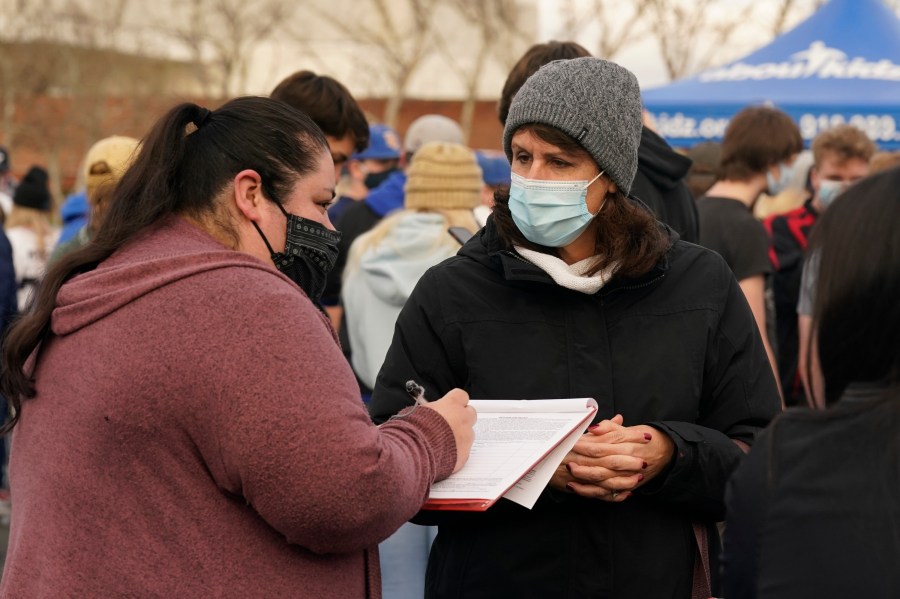California Gov. Newsom likely facing recall election as signature collection ends
SACRAMENTO (NewsNation Now) — A months-long review is set to kick off Wednesday to determine whether California Gov. Gavin Newsom will face a recall election that could oust the Democrat before his first term ends.
The announcement Monday that Newsom was beginning to raise money to defend his seat seemed to confirm that he believes organizers behind the recall have collected sufficient petition signatures to place the proposal on the ballot.
Organizers say they have collected more than 2 million signatures since starting in June. Recall supporters are required to submit nearly 1.5 million signatures to place the proposal before voters.
Wednesday marks the cutoff for recall organizers to submit signatures to county election officials, who will then work to verify the authenticity of the signatures. The months-long review by election officials will determine if — and when — the election will get on the ballot.
The recall effort targeting Newsom began in February 2020, led by a group called the California Patriot Coalition. Collections increased in the fall and winter as anger intensified about Newsom’s handling of the pandemic, but thousands of signatures remain unverified by election officials.
Given the various legal hoops that must be cleared, it could take until September before an election date is scheduled, which strategists on both sides expect to be set for later this fall.
Recall organizers believe Newsom and leaders in the Democratic-run Legislature will do everything possible to delay the election, hoping that his fortunes turn as virus cases fall, vaccinations increase and schools and businesses reopen.
“They can’t win at the ballot box. The only way they can win is to delay the system and delay the process,” said recall senior adviser Randy Economy, who is confident recall supporters will surpass the required signature threshold.
Newsom and his Democratic allies have cast the recall attempt as a politically-driven power grab. He tweeted Monday that he won’t be distracted by a “partisan” recall attempt “but I will fight it.”
The fate of a potential recall election will be decided behind closed doors, where election officials across the state have spent months assessing the validity of petition signatures.
When questions arise about a signature, the benefit of the doubt falls to the voter. An exact match is not required – “similar characteristics” in the writing are sufficient when comparing the petition signature with those in election records.
In trying to weed out a phony, reviewers can consider the slant of the writing and how letters are shaped and spaced. But they also must take into account possible explanations for any discrepancy.
Only a signature “possessing multiple, significant and obvious differing characteristics” with those on record will be subject to further review, under state rules. Even then, two officials must agree beyond a reasonable doubt that the signature is significantly different to disqualify it. So far, more than 80% of the signatures turned in have been validated.
The recall proposal must move through time-consuming steps along the way, including giving voters a 30-day window to withdraw their names, if they choose.
Dates have not been finalized, but the state Finance Department is expected to take 30 days to produce a cost estimate for the election. Then, a legislative panel gets another month to review those findings.
Only after those steps are completed can the state formally certify that enough valid signatures have been collected. If that happens, Democratic Lt. Gov. Eleni Kounalakis is required to schedule the election 60 to 80 days after that point, though it’s possible a later date could be set.
Newsom has seen his popularity tumble in recent months as the public unrest spread over long-running school and business closures, a still-unfolding unemployment benefits scandal and his decision to attend a party with friends and lobbyists at an opulent restaurant, while telling residents to stay home.
A new poll released by Nexstar Media Group’s six California television stations along with Emerson College found Californians are split when it comes to Newsom’s performance and he has his work cut out for him if he is to hold onto his office for another term.
Newsom, a former lieutenant governor and San Francisco mayor, was elected governor in 2018 with almost 62% of the vote. He would be up for re-election in 2022.
Two Republicans have announced their candidacies: Kevin Faulconer, the former Republican mayor of San Diego, and Republican businessman John Cox, who was defeated by Newsom in 2018.











